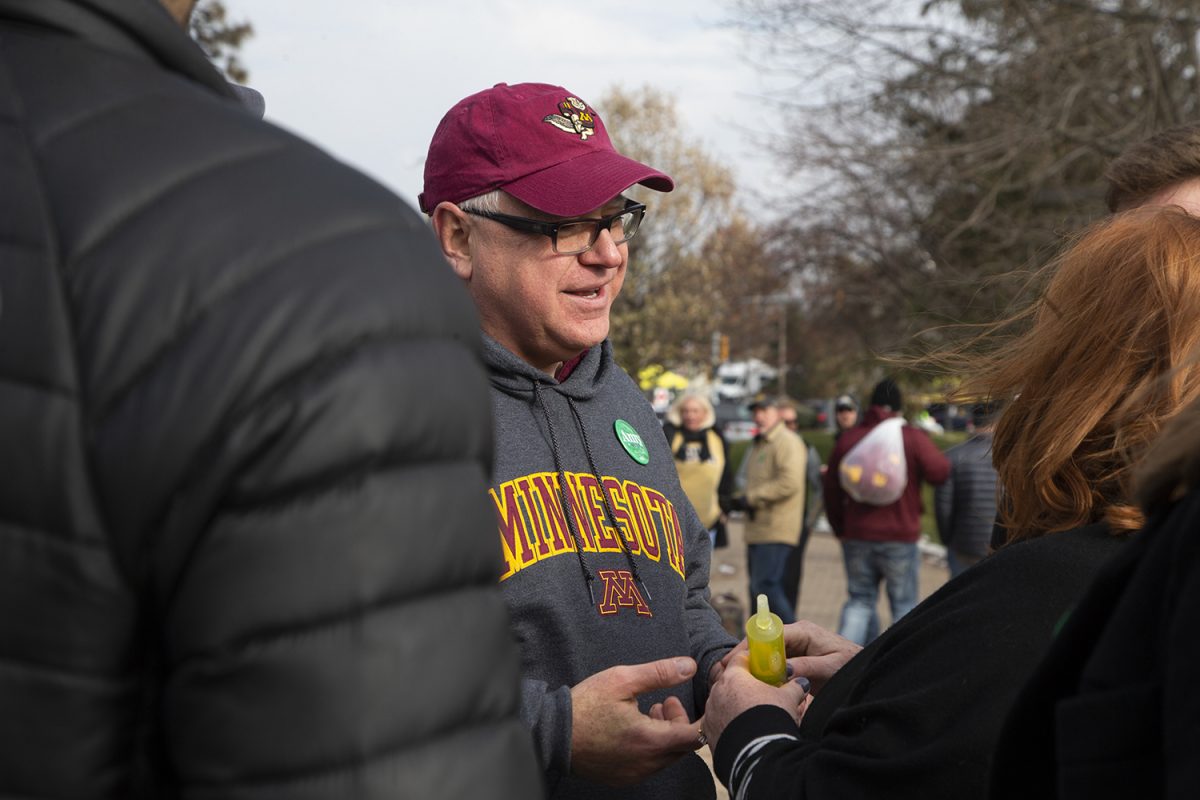Before Tim Walz, there was Walter Mondale, the 42nd vice president of the U.S. under President Jimmy Carter.
A born-and-raised Minnesotan, Mondale was first appointed and then elected as the state attorney general. He then served two terms as senator, during which he focused on the desegregation of schools, tax reform, and fair housing.
As a Presbyterian raised by a Methodist pastor, Mondale also served on the Church Committee. Before participating in politics, he enlisted in the U.S. Army in 1951, and he attended the University of Minnesota Law School with help from the G.I. Bill.
Mondale’s politics weren’t complicated — he understood the value of loyalty, remaining firm in his support for the civil rights movement. He also recognized the importance of listening to the American people, withdrawing support for the Vietnam War, and later referring to his initial support as one of his biggest regrets.
Before accepting the position as Carter’s vice-presidential running mate, Mondale penned a document titled, “The Role of Vice President in the Carter Administration.” His agreement was contingent on three major requirements: a West Wing office, weekly lunch with the president, and a role as the president’s general adviser. Carter signed off — no amendments or deletions necessary.
Mondale did the unthinkable: He made the figurehead role of vice president a real job, and all it took was six and a half pages.
Despite Carter’s low approval ratings and failure to win re-election, Mondale became a guiding figure for his many successors. Nearly every VP has tried to emulate his dedication and vigor. Some have failed, and some have succeeded. But none have come close to Mondale.
Until Tim Walz.
It’s a bold statement to make when he hasn’t served as vice president, let alone won the election, but it’s not unreasonable. If there were a blueprint Walz referred to when making the leaps from public service to congressman to vice president, it would surely have been Walter Mondale. Their similarities are uncanny, if not a little alarming.
I can’t help but ask: How come we didn’t find this guy sooner?
Walz is the populist pick the Harris campaign needed. When he’s corny, it’s endearing. When he laughs, we’re reminded of our dads, not our rich aunts we only see on occasion. Most notably, he feels approachable.
America’s disappointment in our two preceding VPs was palpable. Admittedly, I wasn’t (and am still not) a fan of the Trump administration. Pence’s only notable action I can recall is his denunciation of Trump after leaving office. I also remember the distinct lack of vitriol in how the public spoke about him.
As for Harris, I don’t know if the controversy lies more with inaction or identity. After nearly four years of blatant mispronunciation of her name and racist questions about her ethnicity, it’s difficult to untangle the two.
Regardless, both Pence and Harris were immemorable VPs when it comes to policy decisions, making them both seem unresponsive to the American people.
Harris and Walz might stand on opposite sides of the identity aisle, but their differences combine political savvy with human decency, making them a superior opponent to a Republican campaign that lacks both.
Walz proved his responsiveness to Minnesotans. As a congressman, he maintained a moderate voting record. As governor, he pursued a more progressive agenda. He’s created the relationships in Congress necessary for progress, something voters appreciated about Biden. He’s also shown, when in a position of power, he’s willing to enact laws important to many Americans.
Perhaps Carter’s greatest failure as president was that he was a good human, not a good politician. With a Mondale dupe in her pocket, Harris is an unstoppable force.
Here’s to hoping Walz gets the two terms Mondale deserved.



